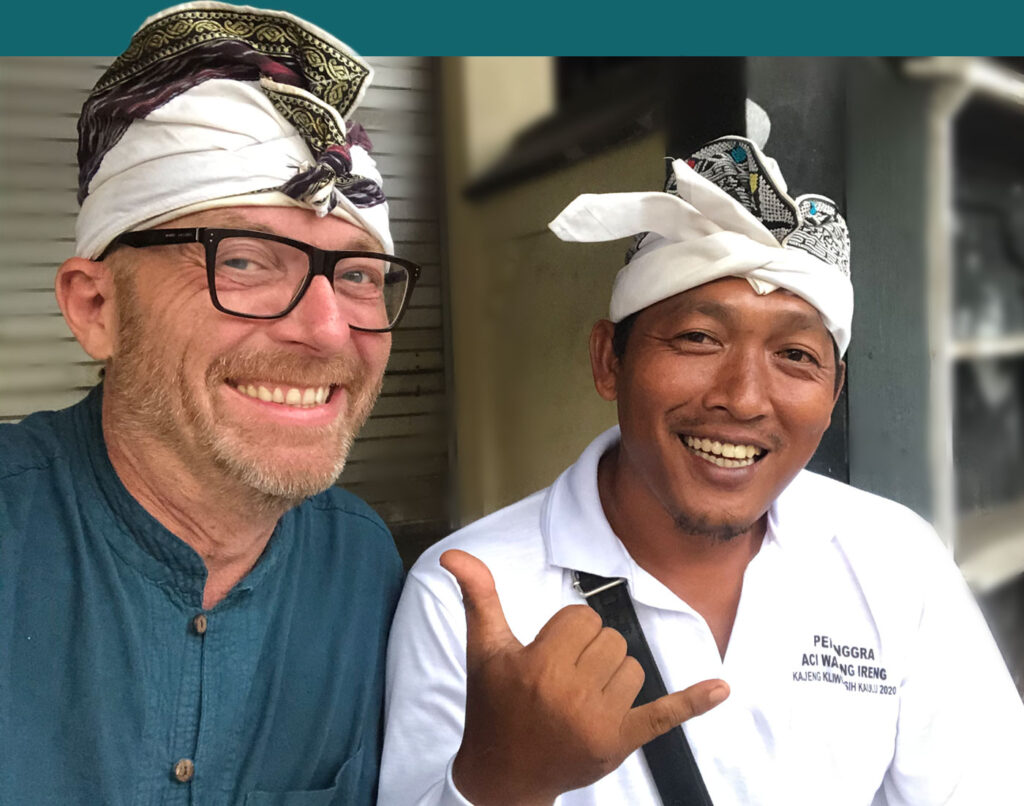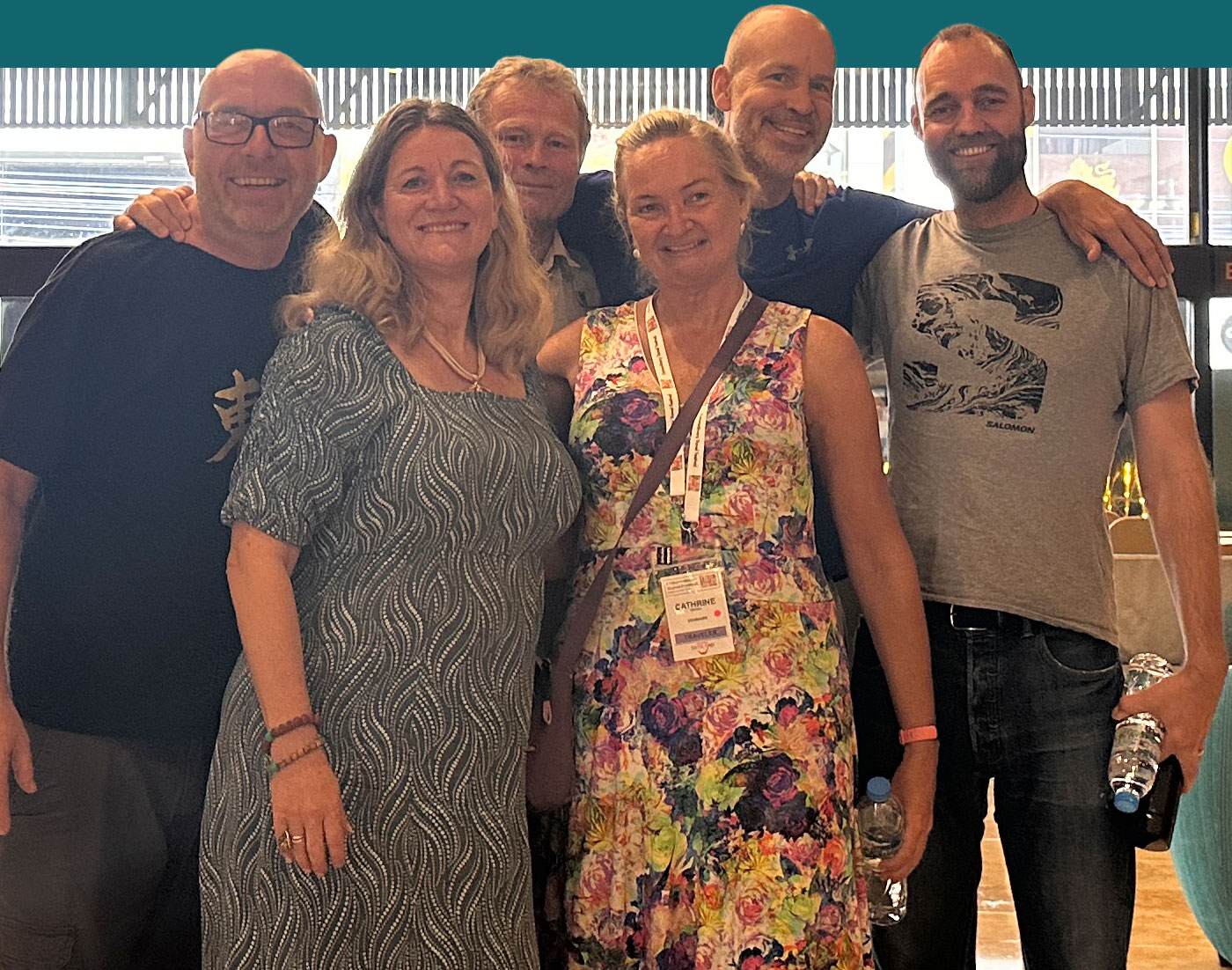Bali, the Indonesian island of ancient temples, verdant rice terraces, and friendly locals, attracts visitors from across the globe. While its iconic beaches, jungle waterfalls, and craft shops draw plenty of tourists, few get to witness the intimate rituals at the heart of Balinese Hinduism. I was honoured to attend one such ceremony unseen by outsiders in decades.
We’re kicking off a new season of The Radio Vagabond, by taking a journey to Bali, one of the most popular tourist destinations in the world. Join me as we discover the island, meet its people, and immerse ourselves in its vibrant culture, as we attend a unique traditional religious event where tourists aren’t welcome.
Get ready for an adventure you’ll never forget!
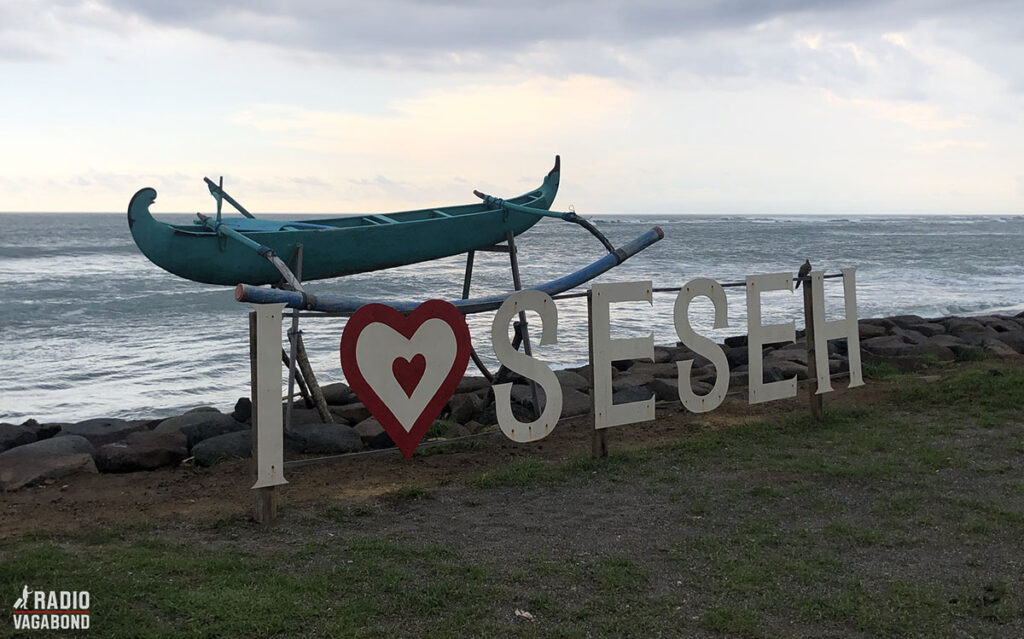
Authentic Balinese Experience in Seseh
We’re in Seseh, located just north of Canggu, where I live. It’s a peaceful village known for its authentic Balinese charm.
It’s a favourite for those looking to enjoy a quieter beach and it’s ideal for exploring the local way of life. The streets in the village are lined with blooming trees and homes with their own small temples, reflecting a genuine Balinese atmosphere.
Stepping away from bustling tourist hotspots like Ubud and Canggu and going to lesser-known villages like Seseh – a small village with only 100 families. It offers a genuine taste of local Balinese charm, and the streets echo tales of tradition and culture. This often provides a tranquil retreat, deepening tourists’ appreciation for the true essence of Balinese life.
It’s close to Tanah Lot Temple, a significant Hindu shrine and popular tourist spot. Its unique location on a rock formation just off the coast adds to its mystical charm. The name ‘Tanah Lot’ translates to ‘Land in the Sea,’ describing its striking setting.
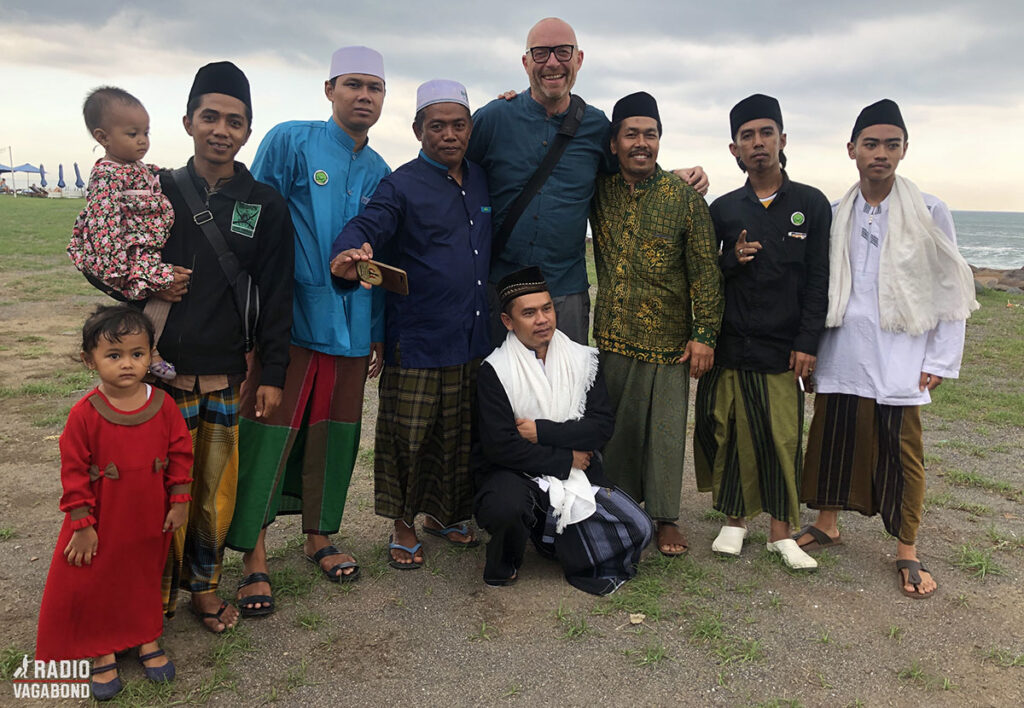
Tips on Driving Scooter in Bali
I’m to meet my friend and driver Wayan on the beach in Seseh. Here I meet a group of locals in traditional outfits and after having been an official photographer for them, Wayan picks me up. Not in his car as he normally does, but on his scooter. And that’s good, as I also have one.
Renting is simple: show your ID, hand over a small fee, and you’re on your way, weaving through Bali’s dynamic streets and scenic backdrops. But traffic can be unpredictable, so if you choose to get one here, always stay alert and wear a helmet – it’s not only safer but also the law. The roads are often busy with a mix of vehicles, so be careful, especially in tourist hotspots like Canggu and Ubud. I had several friends that had smaller accidents.
I was following Wayan, and as a local, he was driving faster than I normally do, but after five minutes we arrived at his home and got into a small courtyard where I met his wife, mother, and kids playing. He’s got two boys and a little daughter. And then throw in a few dogs and chicken.
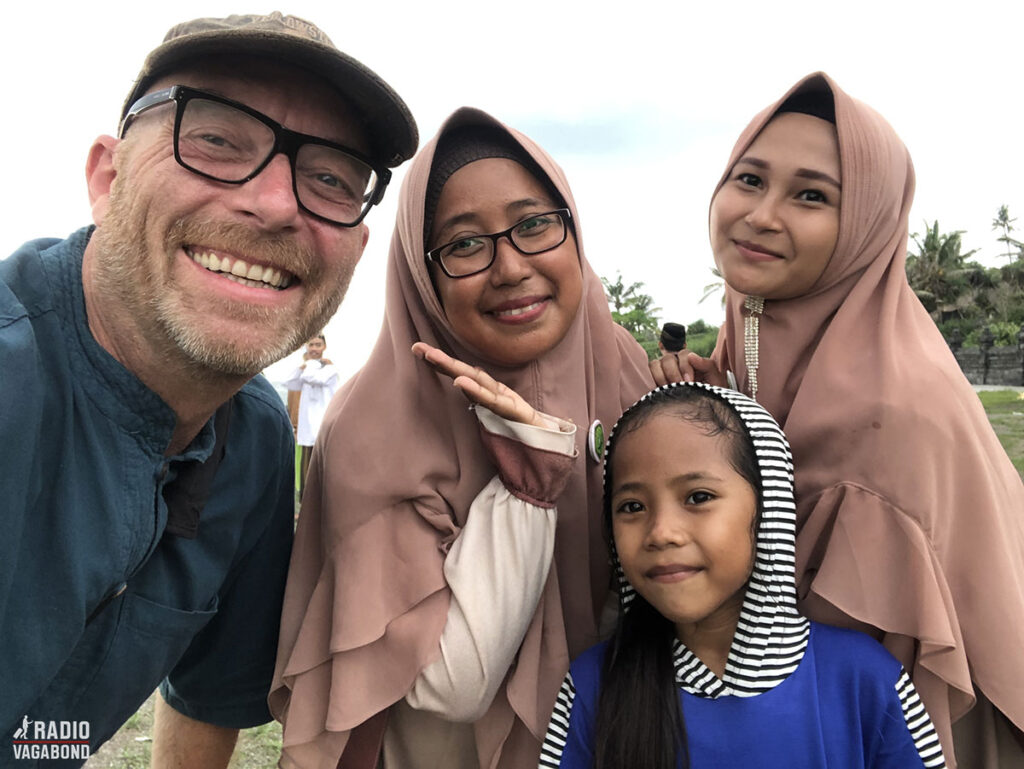
Unique Balinese Naming Traditions
My friend is called Wayan, and with that name, I know he’s the oldest child in his family. You see, in Bali, there’s a unique tradition for naming children based on their birth order, regardless of their gender. This system has its roots in the island’s history and culture, and it’s quite fascinating.
The firstborn child is typically named Wayan, Putu, or Gede. The second child is called Made or Kadek. The third child is known as Nyoman or Komang, and the fourth is named as Ketut.
Now, let’s say your parents are enthusiastic and go beyond four kids. In the spirit of recycling, they simply just repeat this cycle, with the next ‘Wayan’ possibly being called Wayan Balik, which means ‘another Wayan.’
And these names are unisex – like jeans, but with less variety. To spice things up they add ‘I’ for the boys and ‘Ni’ for the girls. So, I Wayan could be your brother, and Ni Wayan, your sister.
So, that’s how I know that Wayan is the big brother in his family. And that Ketut – the old man in the Julia Roberts movie “Eat Pray Love” was a little brother.
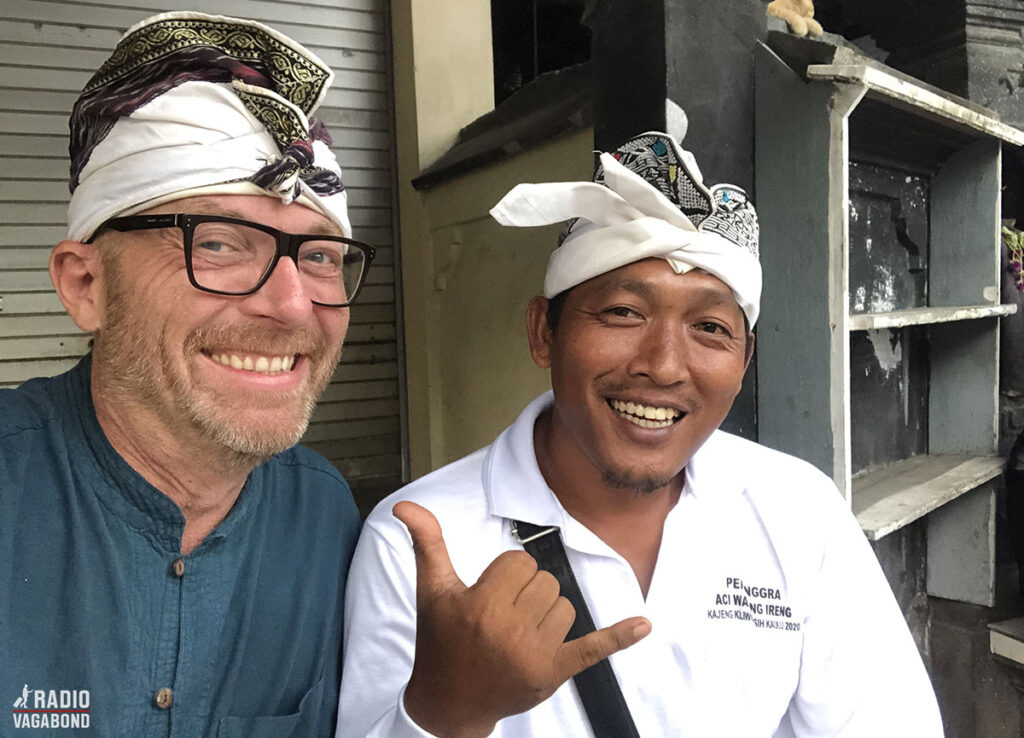
The Concept of Balance in Balinese Hinduism
Central to the unique brand of Hinduism practiced in Bali is the need to maintain harmony between humans, gods, and nature through daily offerings. By showing devotion and making these regular sacrifices of food, flowers and incense, Balinese Hindus aim to protect cosmic balance. Balinese Hinduism is rich in these kinds of rituals and traditions, many of which are closely tied to nature and the sea.
One of the key aspects of Balinese Hinduism is the practice of making offerings, known as ‘Canang Sari.’ These daily offerings are made to express devotion to the gods and to maintain balance and harmony. The offerings typically consist of flowers, food, and incense, and are placed in various locations, including temples, shrines, and sometimes in natural settings like rivers and the sea. And simply outside people’s houses. We see them and smell the incense every day in the streets all over Bali. These offerings are a way of showing respect to the spirits and asking for protection and blessings.
First there’s the concept of balance, focusing on their relationship with the divine. By performing rituals and offerings, they keep the universe in order. Then there’s Dharma, which is like a personal duty or morality guide. It’s about doing the right thing based on who you are, helping maintain social harmony. And finally, Karma – the idea that every action has a reaction, shaping our future. Good deeds lead to positive outcomes, while bad ones bring the opposite. It’s all about moral behaviour to keep things running smoothly.
WHO ARE YOU?
Please spend five minutes taking a the survey – tell me a bit about who you are and what you would like more or less on here on The Radio Vagabond.
A Stunning Spiritual Palace in Bali
A few days before my visit to Wayan’s house here in Seseh, I was driving from the main road down towards the beach and saw this grand temple with a golden dome. I decided to make a stop and walked inside to look around.
I noticed that there was an older man sitting on the ground in the courtyard having lunch. He looked at me walking around for a while, and then sent me a big Balinese smile, and said: “Excuse me, Sir… what are you doing in my house?”
As I was blushing, I found out that it was not a temple. It was simply the man’s private home. With a huge golden dome and all.
I later discovered that the man I met was Jero Mangku Gede Dalem Sakenan Munggu, and the place is called Bajra Sidhi Palace – or simply “Jero Mangku House” and it’s recognized as a center for various forms of spiritual and alternative healing practices. These include holistic healing, sound healing, yoga, meditation, and the use of traditional herbal medicine.
Jero Mangku is a spiritual leader and the main figure behind the palace and has been providing spiritual healing services since 1993.
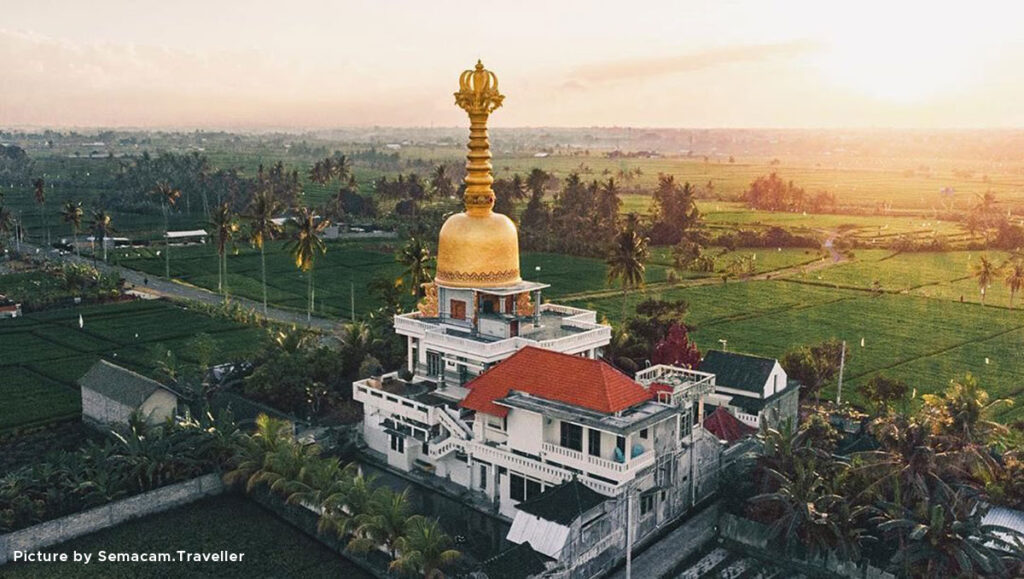
A Miraculous Healing Story
Imagine your 3-year-old unable to walk from an agonizing back tumour on his back. Then picture total joy after a spiritual healer’s brief caress – it vanished by morning. Wayan tells me that he’s had experience this miraclewith the healer, Jero Mangku:
His 3-year-old son needed a vital surgery to remove a big tumour on his back the size of a tennis ball, but Wayan couldn’t afford it. So, his father had to sell all of his cows to raise the money. They scheduled the surgery at the hospital but the night before the surgery, Wayan’s cousin suggested that they went to the Jero Mangku House.
So, they did and after just a few touches with his fingers and a little herbal medicine, the tumour literally vanished overnight. And never came back. The boy is now 15 years old, and I saw him running around and playing in the streets – totally recovered.
I honestly don’t know what to make of this. I only know that if I – or someone in my family became terminal ill and had been given up by the “normal medical system”, I would make my way to the Jero Mangku House.
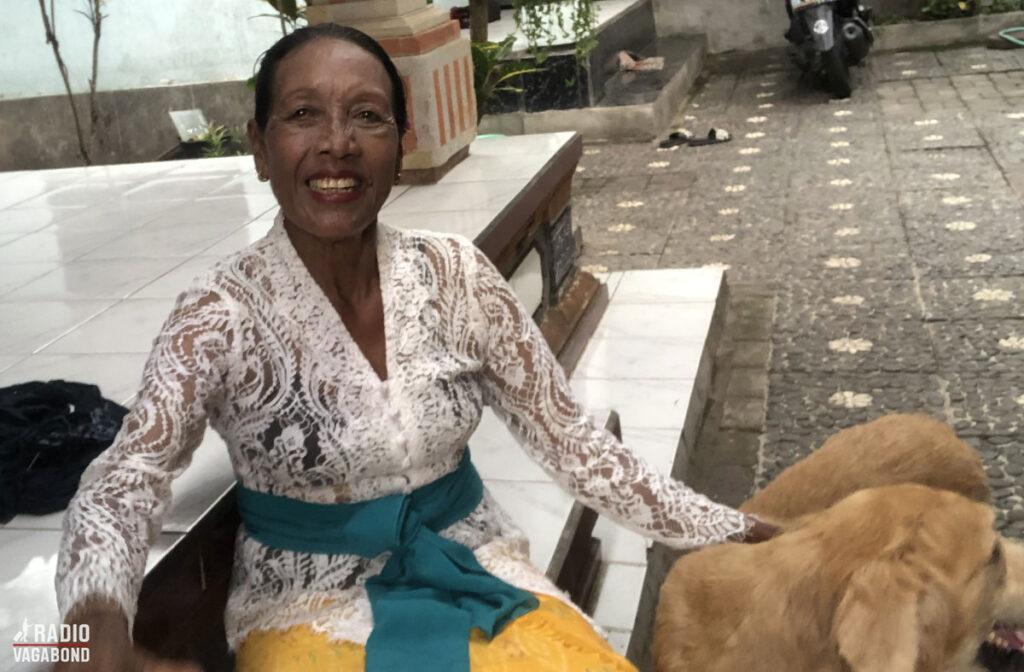
Fascinating Beliefs About Reincarnation
Wayan also tells me about the Hindu belief in reincarnation, where your soul gets reborn after you die. This cycle of being born, living, dying, and then being reborn again keeps going on. A big part of what decides your next life is your karma – basically, if you do good things, you get good karma and a better next life, and if you do bad things, you get bad karma, and you could come back as anything less fortunate than your current status – maybe a pesky mosquito, buzzing around and being swatted at, or a weary donkey carrying heavy loads all day.
So, the idea is, live a good life now, improve your karma, and you’re on your way to eventually reaching that peaceful state of moksha, where you feel super peaceful and happy. And this peaceful, happy feeling lasts forever in moksha.
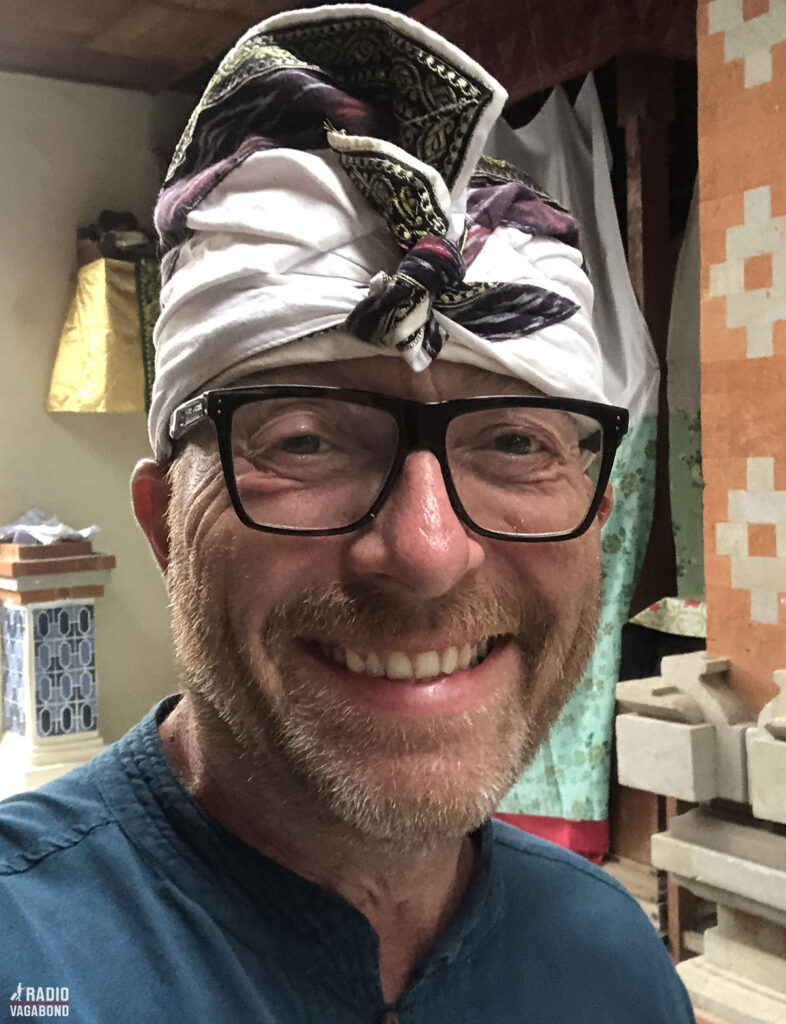
Getting Dressed for the Occasion
Before heading to the street where Wayan and his family will have dinner with the other families in the village, he dresses me in traditional clothing. First a sarong – a staple in Balinese traditional wear for men. It’s a long piece of cloth wrapped around the lower part of the body, reaching down to the ankles. And on my head a Udeng. It’s a piece of cloth tied around the head in a distinctive fashion. The style of tying a Udeng can vary depending on the type of ceremony being attended.
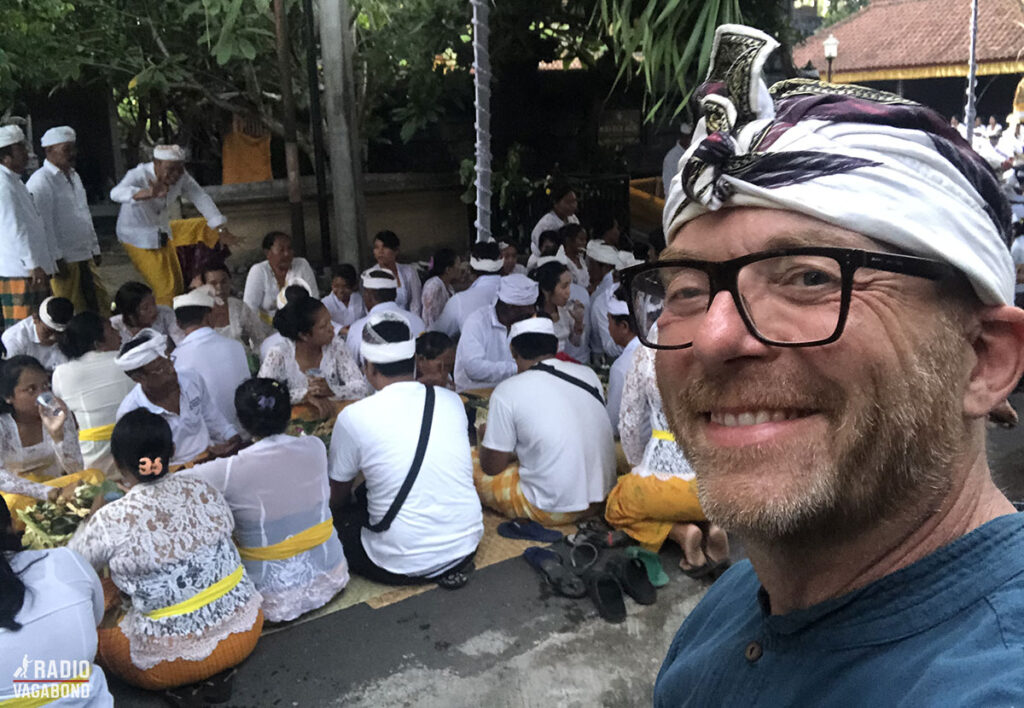
An Intimate Look at a Sacred Ritual
I ask Wayan to explain what is going to happen tonight. All I knew was that it’s a very special night with a unique ritual of sacrifice to the ocean spirits. They call the tradition today ”Mapopado” and the ritual with the sacrifice: “Charung”. According to Balinese Hindu mythology, the sea is protected by Ratnakara. And in the ceremony, they will be offering some meat (the black cow as Wayan calls it) to this ocean Ratnakara so he will keep the fishermen safe.
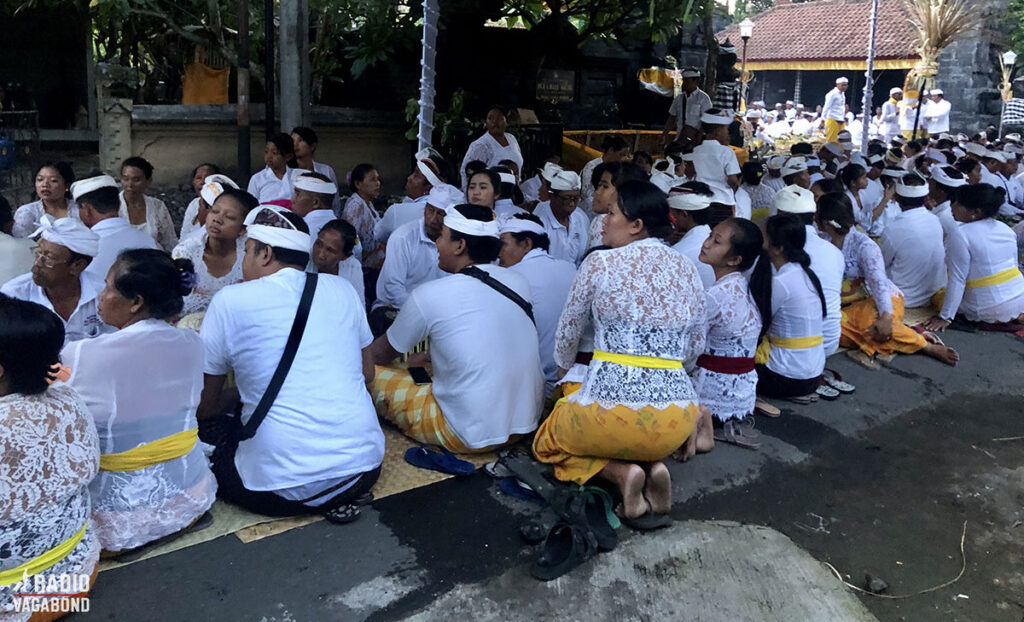
The entire village in festive white outfits is having dinner sitting on mats in the street at low beautifully decorated tables. They don’t finish their plates – that are made out of big leaves. They are leaving something for the offering to Ratnakara. As they are walking up to throw that into the big box, I notice a man in a trance blessing the offerings. There were already a few things in the box – like the skin of the cow, they had been eating, some chickens and other good stuff.
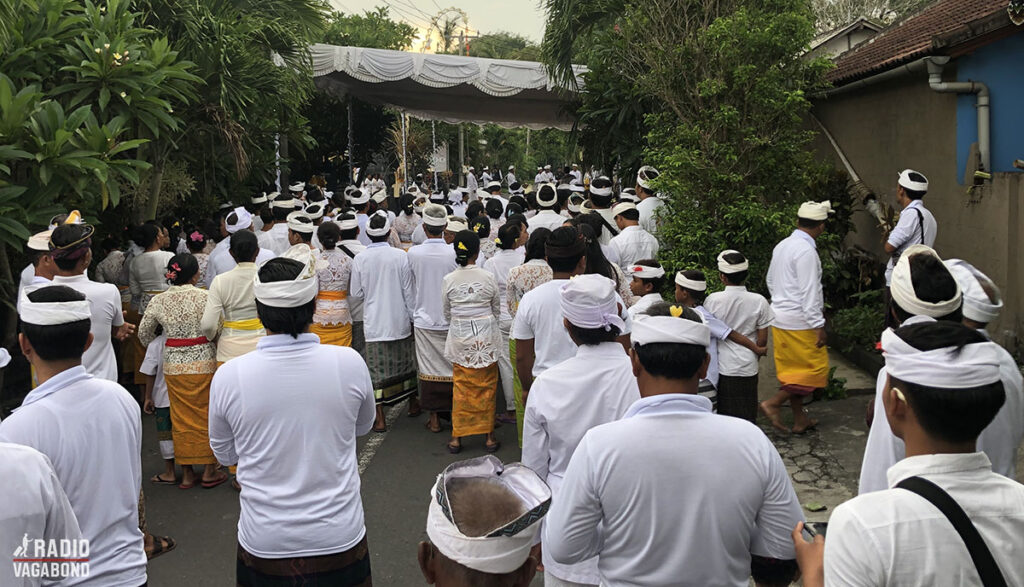
Then we all walk down towards the ocean in a very festive procession with the box carriers leading the way and loud music playing. And when we got there some of the men waded into high waves to sacrifice a symbolic raft with devotion.
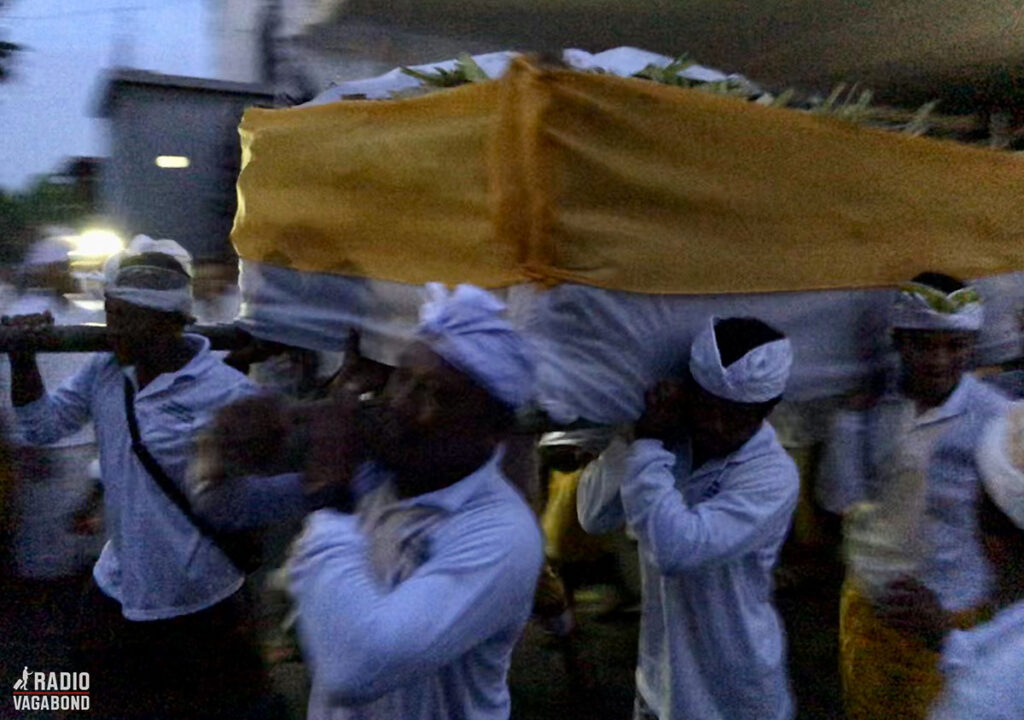
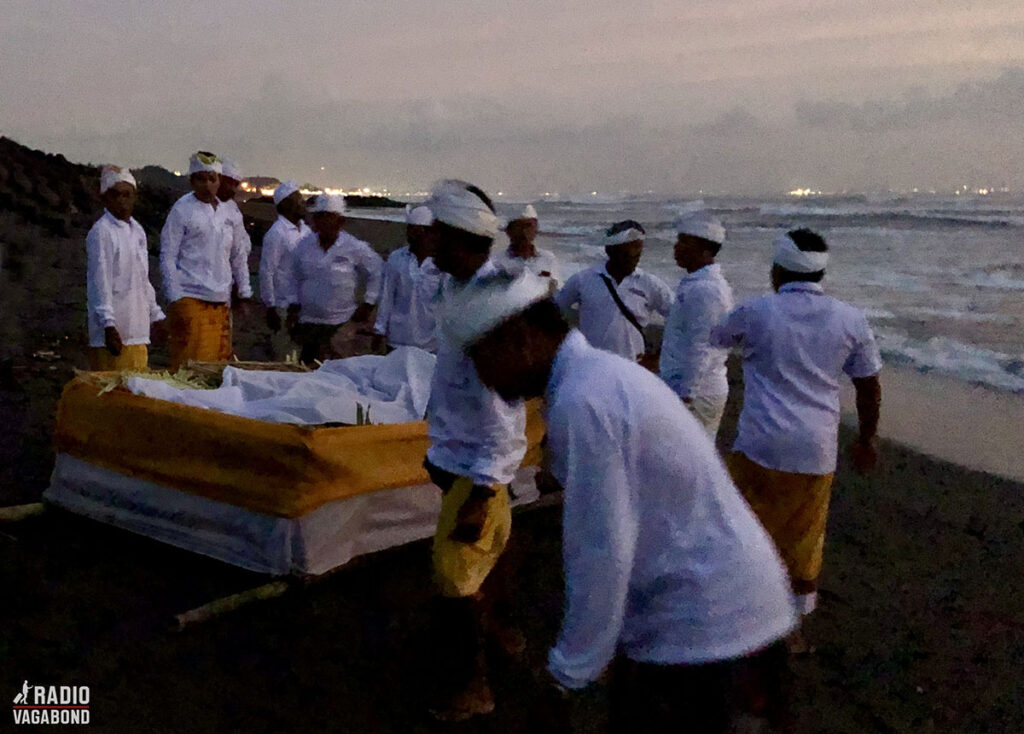
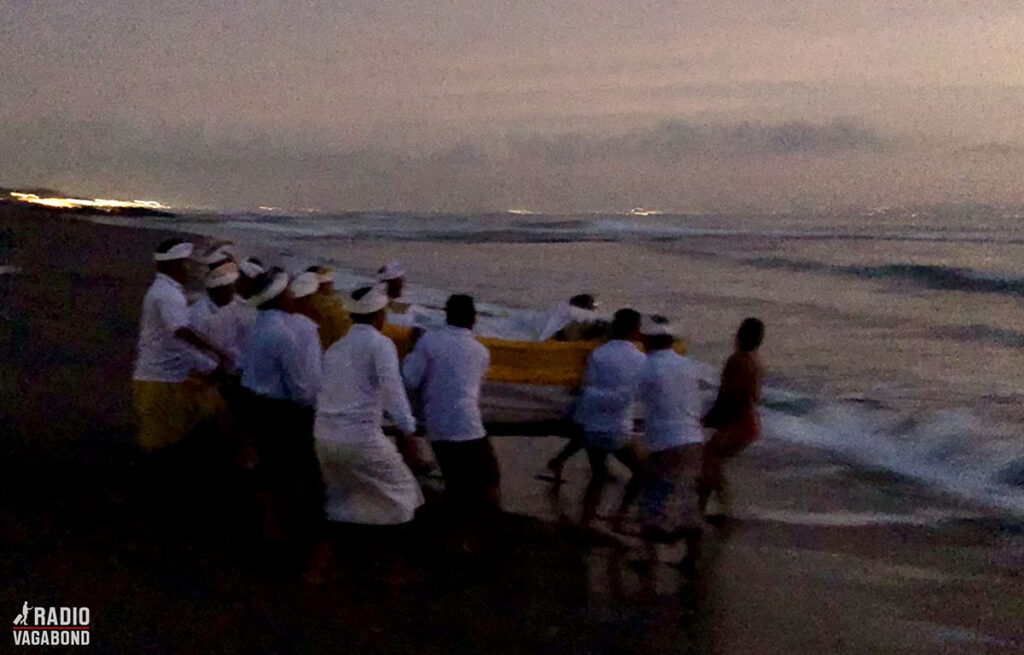
Honoured to Witness a Rare Tradition
This moving ceremony happens once a decade. It felt precious to be allowed so intimately into Balinese traditions and gain insight into their community. A memory for life!
Thank you to Wayan for inviting me and to the town Mayor for approving me being there as the only non-local.
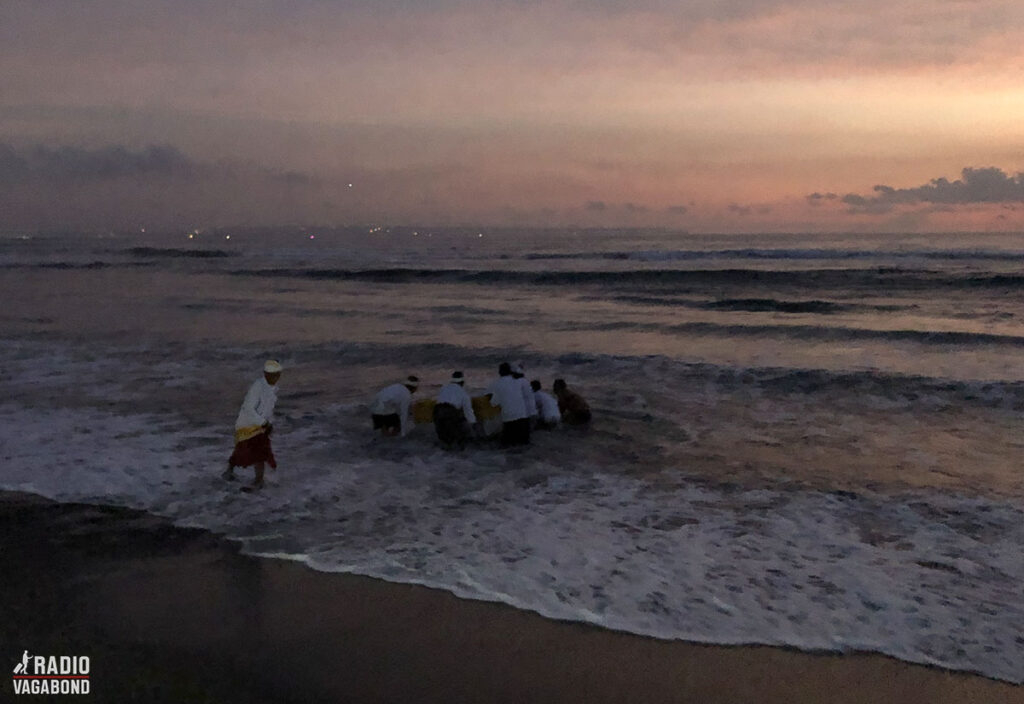
Breaking News:
Introducing “Vagabond Shorts”
I’ve got something exciting brewing for you on The Radio Vagabond. Picture this: snappy, fun-sized episodes packed with nifty tips and cool ideas for your next holiday escape. I’m calling them “Vagabond Shorts” – think of them as your travel espresso shots, each just 10 minutes long!
Kicking off this weekend, we’re jetting off to Bali in our very first Vagabond Short. You definitely don’t want to miss out, so make sure you’re following The Radio Vagabond on your favourite podcast app or on YouTube. And guess what? Many of these Shorts will come alive with pictures and videos! That’s right, we’re turning up the heat now that The Radio Vagabond is an Award-Winning travel podcast – expect more flavour, more fun, and more fantastic travel insights. Stay tuned, the adventure is just getting started!
If you like this idea, please tell a friend.
My name is Palle Bo, and I gotta keep moving. See you.
JEG VIL GERNE HØRE FRA DIG
Fortæl mig hvor er du, og hvad du laver lige nu, mens du lytter til denne episode. Du kan enten sende mig en email på lytter@radiovagabond.dk eller udfylde formularen her på Radiovagabond.dk.
Eller sende en stemmebesked ved at klikke på banneret herunder.

Uanset hvad du gør, vil jeg meget gerne høre fra dig. Det er altid sjovt at høre, hvem der sidder ude på den anden side af højttaleren.
DEL MED EN VEN
Har du en ven, der også er interesseret i at rejse og få inspiration til at komme ud og opleve verden? Så del denne episode. Send en besked eller ta’ telefonen og fortæl om den. Du kan også bare klikke på en af de farvestrålende knapper herunder.
SPONSOR
Som altid tak til min sponsor, Hotels25.dk. Det er et sted, du altid kan finde de bedste priser på overnatning rundt omkring i verden. Og det er garanteret den bedste pris.
RADIOGURU
Radiovagabond er produceret af Radioguru, som også kan hjælpe dig med at starte din egen podcast.

